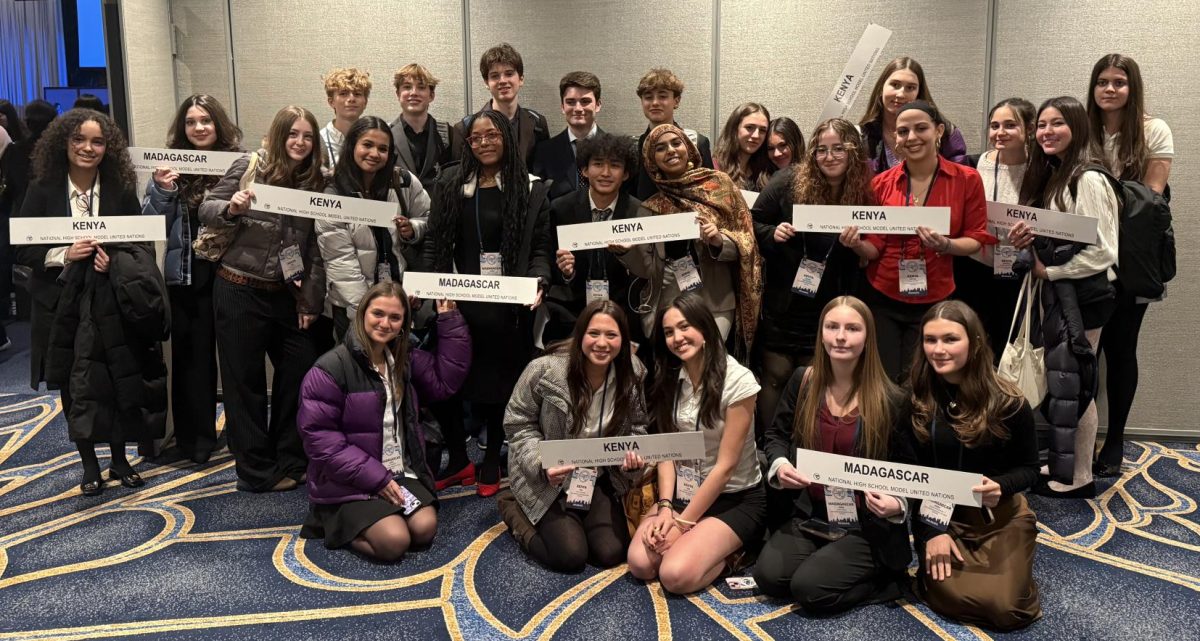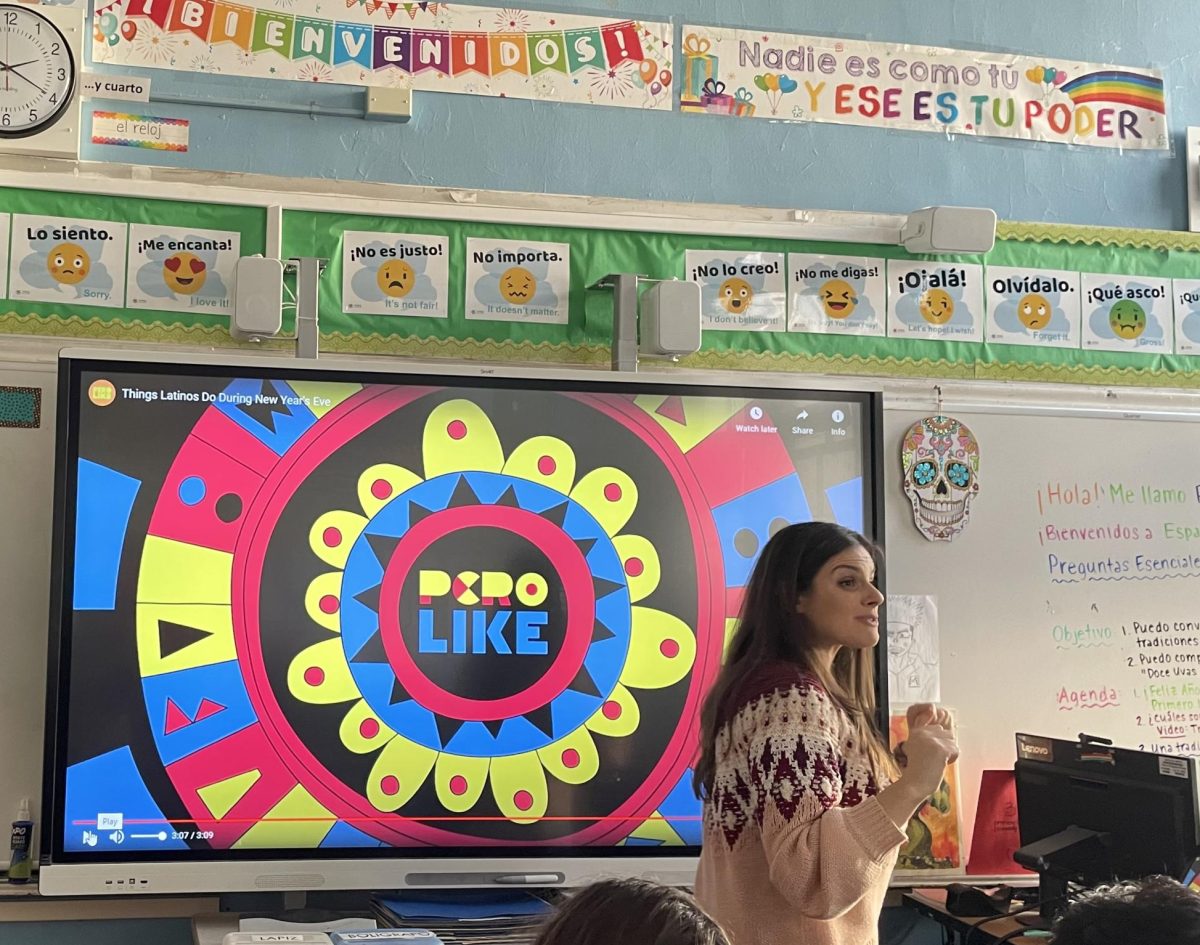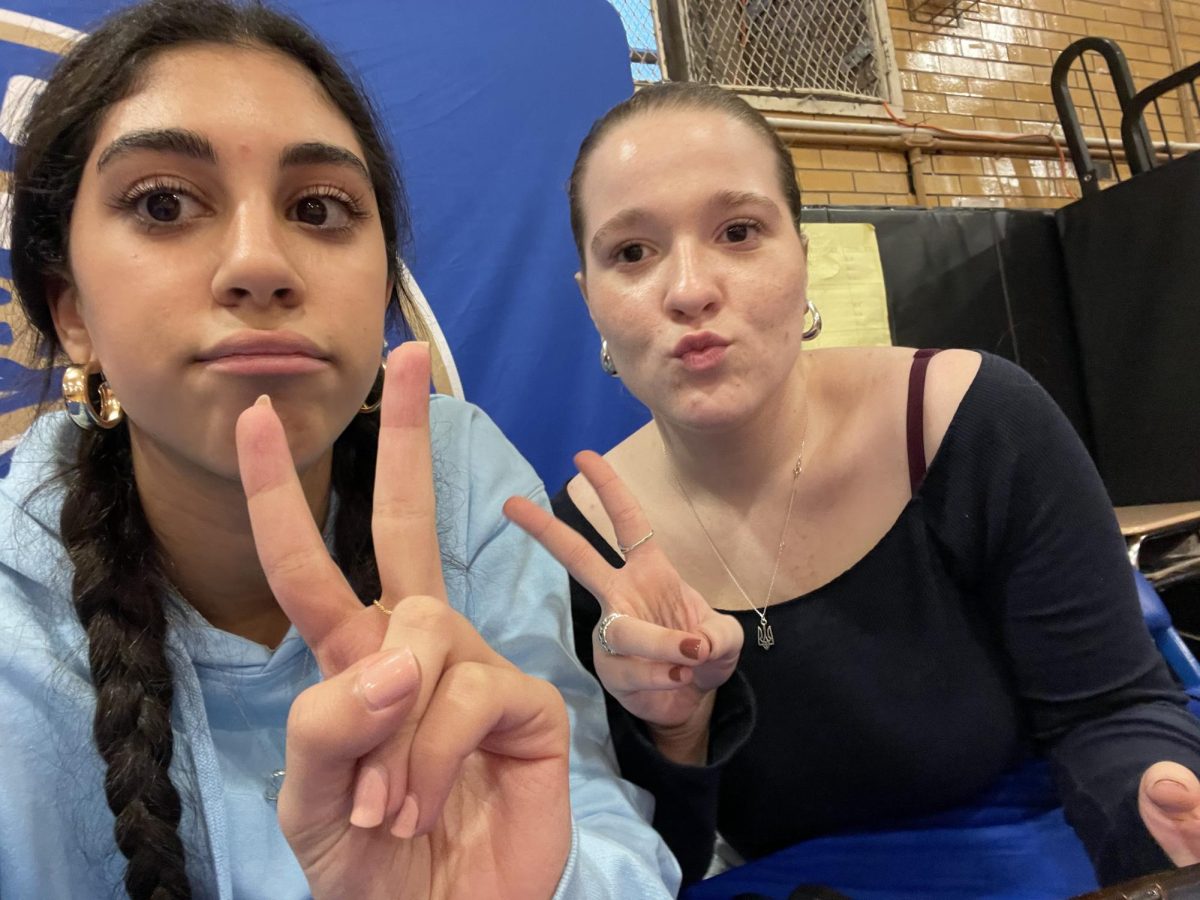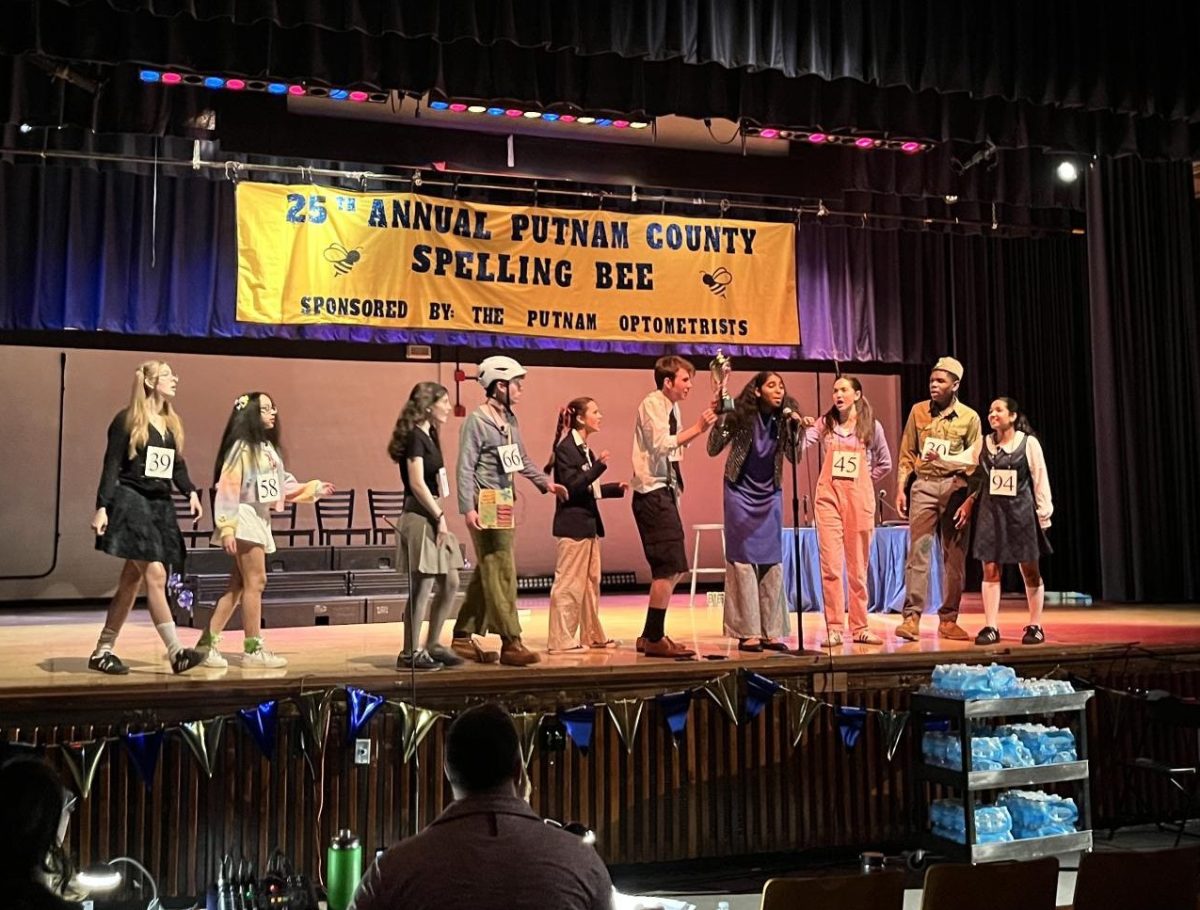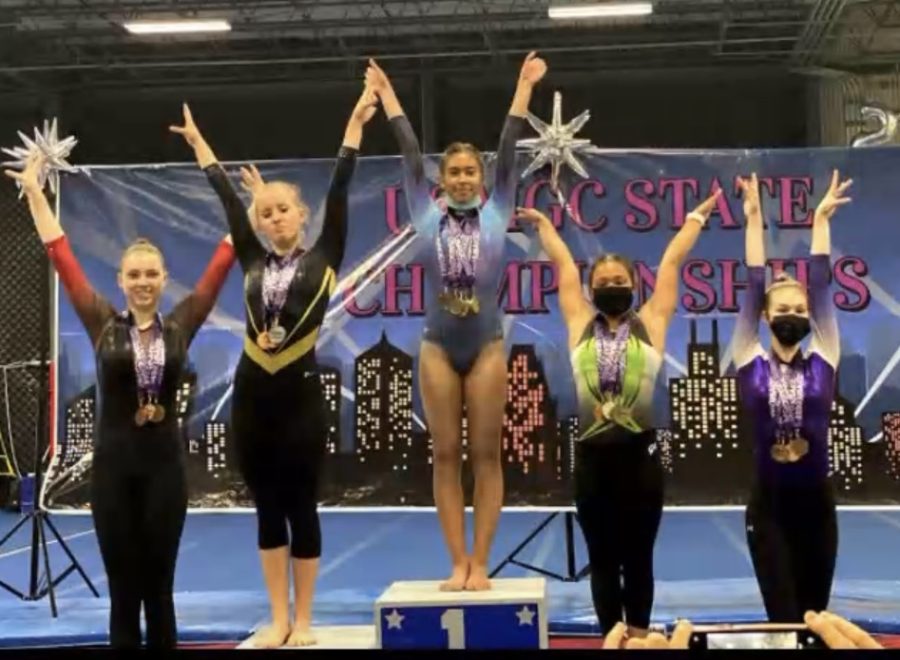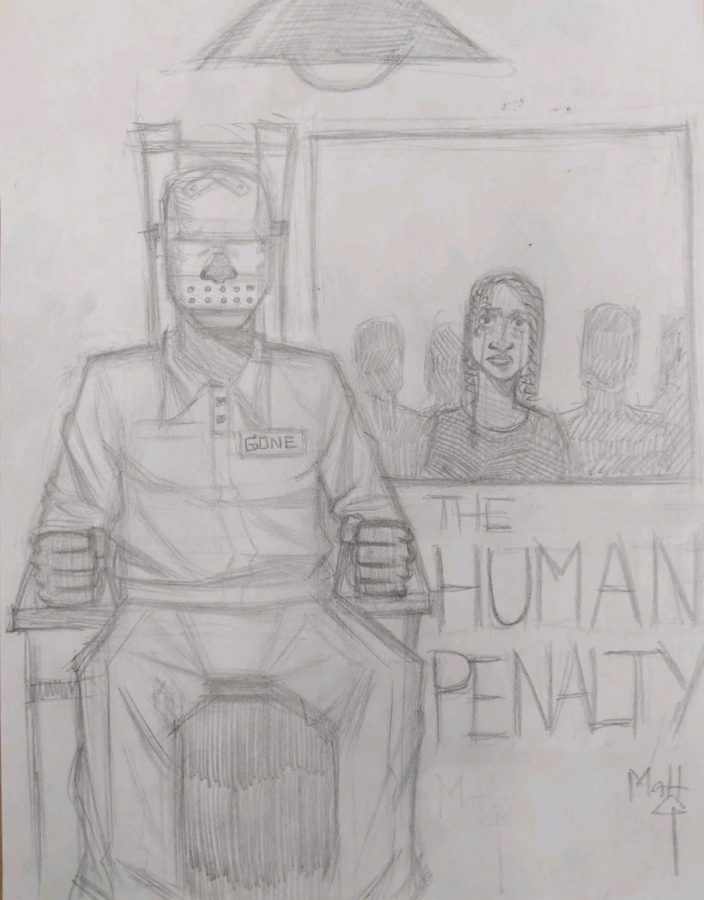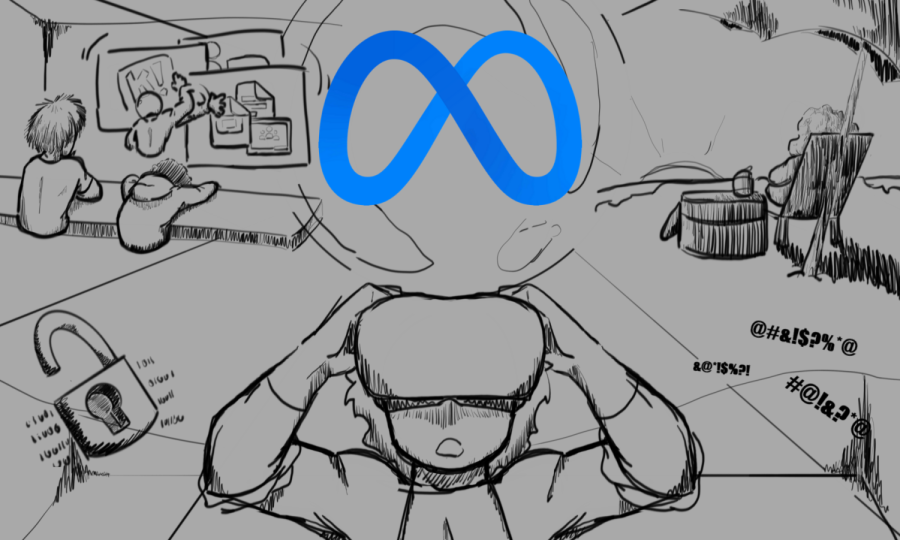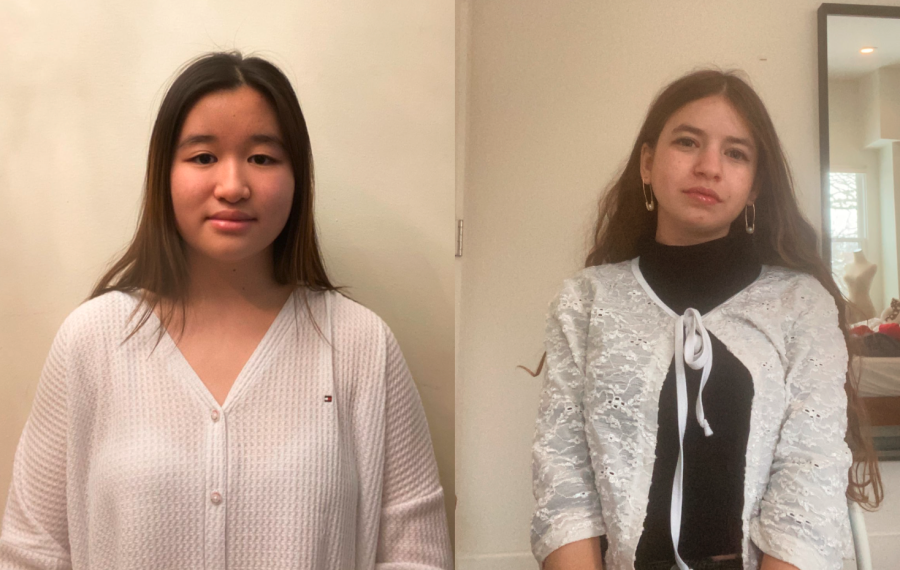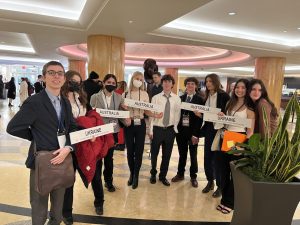Up for Debate: Shayna Klaidman and Tiffany Nguyen Chronicle the Wild Ride of High School Debate
June 18, 2021
Twice weekly, members of the Millennium Debate Club meet to plan, research, and prepare to take on opposing schools in tournaments of verbal sparring. The club started meeting at the beginning of the 2019 school year with two passionate advisors (Mr. Robinson and Ms. Barclay) and a few enthusiastic students navigating the peculiar battlegrounds and idiosyncratic procedures of formal debate. Students in the club study up on issues of social justice and global politics to ready themselves for the oral skirmishes of competition. But while the preparation is intense, club members enjoy the thrill of competition. We might find some of our future lawyers, city council members or senators hiding out in the Debate Club. (After all, Elizabeth Warren was a debate champion in her home state of Texas.)
In preparation for January’s debate, the Millennium team researched the Green New Deal, a proposal aimed to reverse the effects of climate change by investing in clean energy and adopting emission-reduction policies. On the day of the big meet, students were assigned a stance–to support or oppose the following resolution: “The United States should fully fund and implement the renewable energy component of the Green New Deal.” Two MBHS debaters, sophomores Tiffany Nguyen and Shayna Klaidman, share their first-hand accounts of the competition.
January 16, 7:30 A.M. Tiffany Nguyen: I anxiously sit in front of my laptop. My hands clammy, my heart racing, I’m exuding stress, but I brush off these telltale signs of nerves as standard precursor to the approaching debate. Our last debate in November went so well. Shayna and I, competing together, won three of the four rounds arguing for the effectiveness of School Resource Officers in schools, a success that I hope to recreate in today’s debate. As usual though, my pre-competition anxiety is manifesting, as it does every time the NYC Urban Debate League (NYCUDL) hosts its monthly public forum. This month, our team scrambled to prepare in the tight window between competitions. I feel like I barely prepped. I know only the information on the Prep Sheet (a summary of relevant research) and my First Speaker speeches (pre-written addresses stating our position on the resolution along with contentions and evidence to support our stance). In the past few weeks, we’ve barely had time to scour the net to research the resolution. It’s too early for all of this worrying, and I know I’m going to feel so drained after the four rounds. The seconds are ticking down before I need to head into the Zoom and I hope everyone else on the team is feeling more confident than I am. Shayna Klaidman: This is only my second time debating in a competitive setting, so you can imagine the nerves. I thought the second time would be less stressful, but I actually feel as if I’ve ramped up the pressure on myself. I yawn, running on a less-than-perfect night’s sleep. I pace around my room, overthinking everything to come. I take another look at my notes; the statistics and data are overwhelming at this point. I prepare myself for the specific kind of headache I get during and after debates, a mix of stress and exhaustion. I’m really not looking forward to that.
8:30 A.M. TN: Currently, I am trying to cut down my speeches as they are too long to verbalize in the 4-minute time frame. There is just too much to say! Our pairings will be released in about 75 minutes, so I’m hoping we have an easy start. As long as our first opponents aren’t Brooklyn Tech or Bard (who are infamous for their experienced and intimidating teams), we should be fine. I’ve cut down so much of my speech, yet the word count is still almost 1,000. Before my voice crumbles into sand or heart lights on fire, I gulp down some water so I will (hopefully) make it through my entire speech without choking. Considering that I’m a wreck under pressure, I should also start preparing my Summary Speech (the First Speaker’s final speech, in which I will respond to my opponent’s rebuttals and sum up evidence to sway the judge). I will definitely require more than the allotted four minutes of prep time to establish a framework–a brief statement establishing the standards in which you think the debate should be judged–which must accompany the closing speech. There is so little time, but SO MUCH to write and edit.
9:45 A.M. TN: Our match-ups were just released. My heartbeat races as I unlock my phone to text Shayna. I see the three little iMessage dots on the screen already; she must be just as anxious about this pairing as me. I am imagining our embarrassment when our opponents watch our half-baked arguments crumble as they overpower us. I’m going to get a snack and just accept defeat. SK: When the pairings are announced, we are pitted versus the one school I did not want to go up against: Bard Manhattan. Of course, we have to debate one of the best schools in the city! Their reputation precedes them; only the best of the best are on their team. I force myself to inhale deeply and slowly. I try to remember that it doesn’t matter if we win or lose, as long as I learn something. But I am not fooling anyone, least of all myself. A little controlled breathing does nothing to quell the competitive energy inside of me. This year the debates take place online (like everything else) in a format called “public forum debate” where teams of two argue for or against the resolution. I scroll down my screen to join my assigned Zoom call and I try and relax. I just want to do my best.
10:30 A.M. TN: Our round just started 15 minutes ago, and my heart rate has been accelerating since the moment our judge introduced himself. Our opponents have offered extremely valid counter-arguments through their questions in First Crossfire, a 3-minute segment when the First Speaker from each team questions each other, attempting to clarify their own argument or weaken opponent’s. The First speakers duel in Crossfire, then the Second speakers take their turn, followed by a Grand Crossfire, when all four debaters battle it out, after the Summary Speeches.
11:00 A.M. SK: I finally breathe a sigh of relief as I turn off my stopwatch and mute my screen. One round done, three to go. I’m the Second Speaker, which means I’m responsible for refuting my competitor’s claims. My opponent is nearing the end of her second speech, known as the Final Focus–the last speech of the debate. My mood has completely lifted since this debate began. We were arguing for the pro side, as in, YES, we should enact the renewable energy components of the Green New Deal. In the middle of my first speech, as I cut apart my opponents’ contentions, I realized that I was actually having fun. I felt happy and confident and realized, “Oh yeah, this is why I do this!” TN: The debate has concluded and we sit in silence, awaiting the judge’s feedback. (This is one of the awkward elements of a Zoom debate; in an actual competition hall, I imagine the room would be filled with chatter.) I message Shayna asking her for her take on how the round went. She thinks that the results are close. Suddenly, the judge turns his camera on. He announces that the affirmative side (me and Shayna), won the round. I sit in utter disbelief, my heart lifting thirty feet into the air. I refrain from smiling to avoid gloating in front of our opponent, but I reach for my phone and discreetly message Shayna: “OMG YAY!” We congratulate our opponents and leave the room, reconnecting to the Team Zoom for a quick check-in before our next round.
11:40 A.M. SK: I take a deep breath and ready myself for the next debate. This time we are arguing on the con side, which is a lot harder. Essentially I have to argue against legislation that I believe in wholeheartedly; The Green New Deal has the potential to save the earth and our species. But rising to the challenge of arguing against my own beliefs is part of the fun. I feel relatively prepared, but still nervous. We’ll see how it goes.
12:00 P.M. TN: Fifteen minutes into our second round and my high spirits are transforming into frustration. Our opponents are unnecessarily aggressive, nitpicking every detail to discredit our argument. Their argument in favor of the implementation of The Green New Deal and its effectiveness isn’t powerful enough for them to act this bold. During our last debate in November, we encountered a similar team of Freshmen (read that as Fresh-mean) upstarts who had the audacity to continuously interrupt us. Why is it always the little kids who exhibit so much spunk? If we don’t win this round, it will be embarrassing.
1:00P.M. SK: Our mistake was not knowing the rules well enough. Since it’s so hard to argue against the importance of saving the earth, one of our strategies was to argue for an alternative plan, specifically “The Biden Plan”–the president’s proposed climate deal which, while less ambitious than The Green New Deal, is still a pro-environment, pro-regulation plan. A large chunk of our rebuttal relied on this line of thinking, when the judges notified us that we weren’t allowed to offer alternatives, it derailed our whole game plan. I covered by emphasizing other contentions we had discussed, but we felt we were at a huge disadvantage. After the second round, we conferenced with our team over Zoom, and learned that several teammates had similar experiences. Luckily we’re arguing in favor of the Green New Deal for the next round, so we have some time to adjust our con strategy. Hopefully we can recover from this.
1:15 P.M. TN: I frantically click through my “Debate Notes” and “Speeches” tabs to locate effective rebuttals to my opponent’s claims. First-speaker crossfires are always so intimidating as I am terrible with confrontation, and this time is no different. One of the opponents seems fired up, almost rabid for the chance to spar; her eyes shoot lasers into my soul as I read my speech. Unfortunately, she has been assigned as my rival in the crossfire. Her questions challenge everything I came into this round feeling confident about. I quickly snap out of my thoughts to refocus and respond. But I fumble, my mind too fogged and confused to answer. After a few seconds of hesitation and searching through my notes, I force myself to admit defeat and respond, “I don’t know.” I attempt to recover by mustering up relevant details that might invalidate her question’s significance. Lucky for me, judges don’t score crossfires, only the formal speeches.
2:00 P.M. TN: Our third round has just concluded, and I begin to notice how tired and burnt out I feel from the constant critical thinking. However, I am regaining some energy and motivation as our judge observes the room is filled with female debaters and exclaims, “Girl power!” As I log off and return to the Team Zoom, I hear teammates describing the injustices they had fallen victim to in their previous round. I listen carefully to note the names of the Brooklyn Tech student judges who seemed to have misinterpreted the rules in their debates, hoping I do not see them in our next round.
3:00P.M. SK: Our last two rounds went well. They were uneventful for the most part. We did our best but we were also up against some pretty good competition. Throughout the day, my confidence has been slowly wavering. With every round, I feel more and more like we’ve lost it. Now, all we can do is wait to see how we performed. I try to remember that winning isn’t necessarily the most important thing, but I’m too competitive for my own good.
3:45 P.M. TN: Finally! The debates and their associated stress headaches are finally over. I turn off my laptop and drag myself to my room where I set my belongings on my desk and fall into bed. My adrenaline from the Crossfires and quick-write Summary Speeches keeps me from being able to nap, so I just stare at the ceiling.
5:30 P.M. TN: I have been trying to fall asleep for the past hour, but my eyes shoot open when I hear the vibrations of my phone signaling what I assume are spam notifications. I drag my arm across my bed to locate the device. When I unlock it, I see messages about our results and I immediately shoot up in my bed and reach for my laptop. I navigate to the Results tab to discover that we won three rounds and lost one, our last matchup. That’s victory enough for me! I find myself smiling and staring at the three W’s on the screen, proud that our second debate has been successful. SN: We have a winning streak for the second competition in a row, which means we qualify for States! Tiffany and I text each other to congratulate each other at almost the exact same time. My excitement had drowned out my exhaustion, but now it’s coming back and I’m just happy the day is over. You know, it’s never too early to prepare for the next competition. But I’ll go easy tonight and celebrate with some well earned rest.
